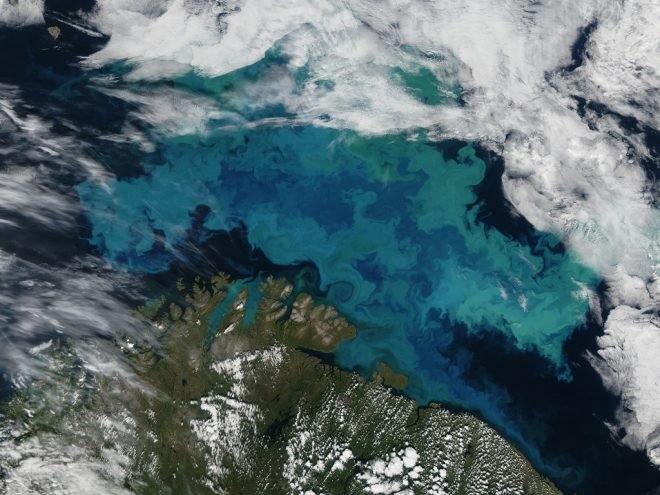11 Dec 2024

Tired Earth
By The Editorial Board

Phytoplankton are the foundation of ocean life, providing the energy that supports nearly all marine species. Levels of phytoplankton in an ocean area may seem like a good predictor for the amount of fish that can be caught there, but a new study by Nereus Program researchers finds that this relationship is not so straightforward.
"Using measurements of phytoplankton growth at the base of the food web to estimate the potential fish catch for different parts of the ocean has long been a dream of oceanographers," says author Ryan Rykaczewski, Assistant Professor at University of South Carolina and Nereus Program Alumnus. "We know that these two quantities must be related, but there are several steps in the food chain that complicate the conversion of phytoplankton growth to fish growth."
Published in PNAS, the study uses a mathematical model to explore the processes that mediate the transfer of energy from the base of the food web to fish. The authors found that there are large regional differences in fish catch because of how surface ocean and bottom ecosystems channel energy sources.
"Coastal systems where large amounts of nutrients critical for phytoplankton growth are 'upwelled' from deep waters via currents make a contribution to global fish catch that far exceeds what one would expect from phytoplankton production alone," says lead author Charles Stock, Research Oceanographer at NOAA/Geophysical Fluid Dynamics Laboratory and Nereus Program Principal Investigator.
These findings allow for better predictions of catch potential in different ecosystems and how climate change will affect fisheries. Phytoplankton require light, found at the surface of the ocean, and nutrients, which tend to accumulate in deeper waters, to grow and create the energy needed to support fisheries. Warming of the surface ocean due to climate change is increasing ocean stratification -- the segregation of deep and surface waters. The effects of this will be amplified in low and mid-latitude areas, where modest to moderate declines in phytoplankton production, of up to 15%, could result in fish catch decreases that may exceed 50% in some places.
"Changes at the base of the food web among plankton are amplified when examining top and intermediate predators, such as fish," says author Rebecca Asch, Assistant Professor at East Carolina University and Nereus Program Alumnus. "This indicates that climate change will have a substantially larger impact on species further up the food chain. This is important since these are also the species that we as humans depend upon as sources of protein to feed the world."
This work allows for more confidence in advising fisheries managers and policy markers on the impacts of climate change on fisheries production. The authors note that there is a need for ecosystem-based fisheries management strategies that consider potentially large regional changes in catch potential and a need for improved constraints on such changes.
Source: sciencedaily.com
Comment